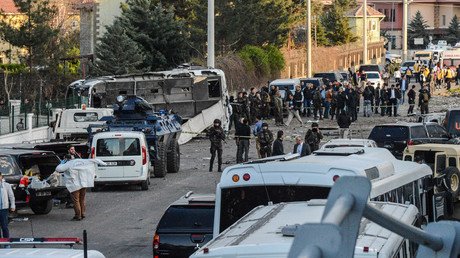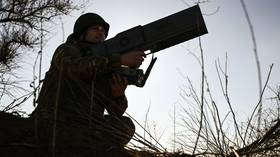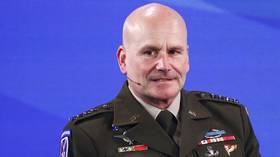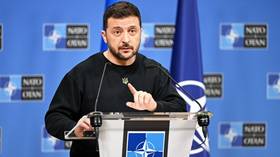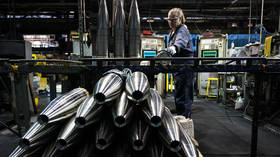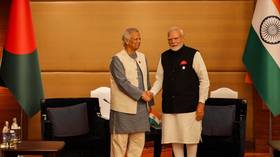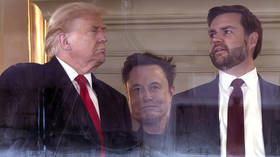‘Erdogan lives in his own world; Turkey turns to greater authoritarianism’
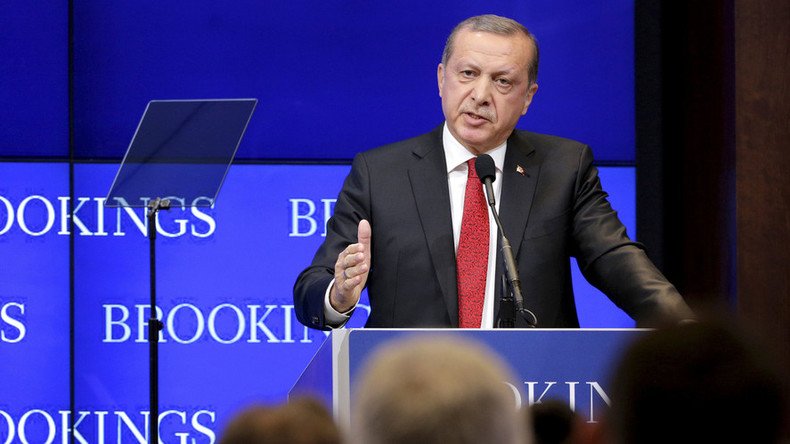
Recep Erdogan is living in his own world, labeling others as terrorists and by doing so, driving Turkey away from the reforms and moral progressiveness he has avowed, said Ronald G. Suny, University of Michigan.
Turkish President Recep Tayyip Erdogan gave an interview to CNN on Thursday during his visit to the US, discussing some major issues.
RT: What do you make of President Erdogan's statement, where he has blamed Europe for failing to recognize the significance of his calls for a common stance on fighting terrorism?
Ronald G. Suny: What he means by terrorism is not only ISIS/ISIL/DAESH, but also the Kurds. He is trying very hard to combine those two in a single category called terrorism. But the US and others are not in agreement with Erdogan on this point. In fact we, the US, are de facto allies of the Kurds – both in Iraq against ISIS and in Syria, as well. But Erdogan wants to convince the world - and he is having trouble doing this – that the Kurds who are fighting for their own autonomy within Iraq, within Syria, and indeed within Turkey, are terrorists, when they are a kind of national liberation movement.
RT: Erdogan also said EU member states are feeding ISIS with fighters and has stressed the need to stop this. Do you think President Erdogan is someone who can actually give advice on what should be done?
RGS: There is no doubt, there is a lot of evidence that Turkey was not very convincing or not very convinced that ISIS was that much of a danger. There are accusations of some kinds of support up to a point. That seems to have changed. And because it changed Turkey is now a target of ISIS. There have been explosions in various Turkish cities, which have been linked to ISIS.
Turkey is in a very odd position. It is receiving about three million immigrants from Syria. It has internal immigrants, Kurds, from the south-east largely, because the Turkish government of Erdogan is fighting a war against his own Kurds. It is being attacked within and without; it is closing newspapers; it is arresting journalists. It is very hard to decide, what exactly Erdogan’s direction is anymore. He is fighting both an internal war, and he is also involved in these anti-Kurdish movements abroad, as well.
RT: Why do you think Erdogan is now trying to criticize Europe for its 'wrongdoings'?
RGS: I think there are two things going on here... On the one hand, Turks still have an ambition to join Europe, to be recognized as part of the modern world in that sense. And they have been using this Syrian crisis to leverage their way into Europe. They are not just asking for a new visa regime with Europe, they also want membership of the EU that they have been seeking in some ways for the last several decades.
On the other hand, they see many Europeans as hostile to Turkey. [Erdogan] even mentions in his interview that there is a kind of Islamophobia prevalent in Europe. His own views on Europe are sort of ambiguous or ambivalent. Europe represents the future, but Europe also is an alternative to Islam and to the kinds of things that Erdogan himself personally, religiously stands for.
RT: While giving a speech at the Brookings Institution, Erdogan sent condolences to the families of the victims of a suicide bomber in the mainly-Kurdish populated city of Diyarbakir, southeastern Turkey. He also said: “You cannot find any country that pursues high standards and human rights and democracy like Turkey.” What do you make of this statement?
RGS: When you look at the interview with Christiane Amanpour you can see that she is a little bit incredulous in the way that Erdogan is shaping his own reality. He is living in his own world and he is labeling others as terrorists, as not understanding the real situation. By doing this he is actually driving people away from the kinds of reforms, the kinds of moral progressive aspects that he had represented earlier, when he was prime minister.
Turkey seems to have made some kind of turn – a turn toward a greater authoritarianism. That is very regrettable, because there is no really effective opposition to Erdogan within the country at the moment. Hopefully, the Erdogan government will change course; hopefully the Kurds and others maybe can offer an alternative. The HDP [Peoples' Democratic Party], which is a Kurdish national party, which is represented in parliament, which Erdogan is trying to attack – maybe they can present in a small way a democratic alternative to what looks like a clear road to authoritarianism on a part of the government.
The statements, views and opinions expressed in this column are solely those of the author and do not necessarily represent those of RT.

